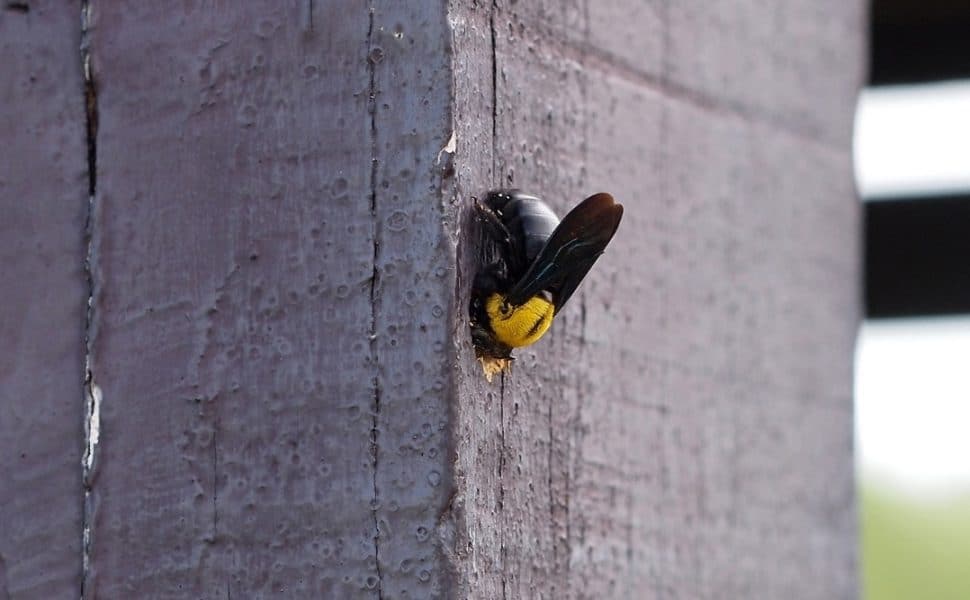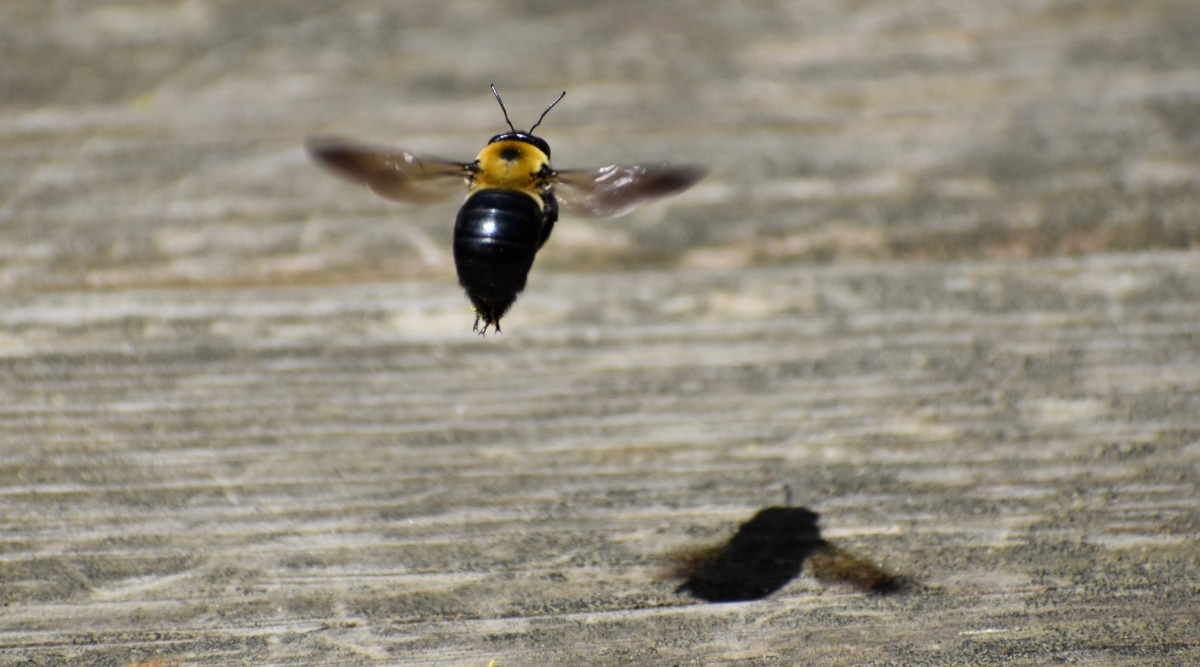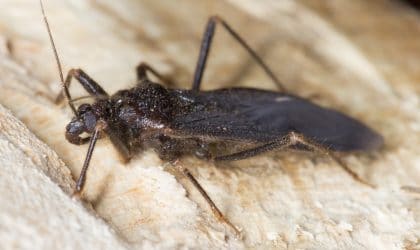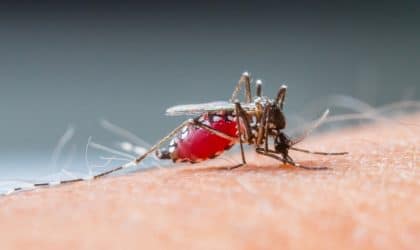Are Carpenter Bees Active at Night? Carpenter Bee Removal in the Dark
Do you have a carpenter bee problem that you are trying to resolve, but aren't sure if it's better to do it at night, or during the day? Read on to find out the best time to remedy this annoying problem leaving holes in the wood of your home!

They say that bee removals work better at night. That’s because bees are generally less active during that time. However, is this true to all kinds of bees? What about carpenter bees? Are carpenter bees active at night?
Because carpenter bees are different than your standard bees, it’s likely you are trying to figure out if you can use the same methods for bee removal in your home.
Carpenter bees don’t look like it, but they actually set up a time to take a nap. So is it more effective to remove them at night? Read on to find out!
Do Bees Sleep?
When talking about nighttime and activity levels, “sleeping” is definitely one of the most important things that need to be addressed. From our last post, we talked about how ants are active even if it’s dark out. They sleep in intervals which makes it look like they’re always out and about. It’s an efficient method that gets things done. But is this behavior mirrored by the bees? Or do bees sleep like humans for long periods of time?
Well, it turns out that they do. All insects have a central nervous system that requires them to sleep, even for just a few minutes. So like ants, bees, including carpenter bees, need to nap some time during the 24 hours of each day.
Carpenter Bees Don’t Do Much at Night

So is it a good idea to remove carpenter bees at night? Most of the time, it’s a resounding yes. As we mentioned earlier, carpenter bee behavior isn’t as far away from other bees. They also prefer to do all their foraging when the sun is out.
So when it gets dark, they return to their holes to get some rest. According to The Connecticut Agricultural Experiment Station, you’ll often find female carpenter bees resting in their burrows at night, especially when they’re still in the middle of constructing the tunnels inside.
But before you plan your removal, note that this sleeping schedule is very dependent on the environment that the bees live in. They can actually change their sleeping time when food is scarce. When there aren’t plenty of flowers and disastrous weather phenomena like droughts or typhoons are prevalent, bees can alter their usual circadian rhythm and rest in another time, prioritizing food gathering.
Getting Rid of Carpenter Bees at Night
Now that you’ve decided to remove carpenter bees at night, remember that it often involves more people and more tools. That’s because darkness can be a problem for both you and the bees. You’ll need the extra help. You need to handle the visibility issue properly to avoid getting stung. Here’s what you have to remember:
Wear the right gear: Resist the temptation to skip on wearing your bee suit. Even if carpenter bees aren’t as many as honey bees, you don’t know how many of them are coexisting inside the tiny holes they’ve made. Being safe is lightyears better than being stung.
Use a vacuum cleaner: Suck out the bees using a regular vacuum cleaner.
Inject the entrance hole with insecticide: You can use dust or spray insecticides for this.
Cover the hole for 24 hours and repeat: Don’t just use the removal method once. After the initial operation, cover the bee’s entrance tunnel for 24 hours. Then repeat the entire process until no activity can be detected anymore.
Humane options are still doable: Remember that since carpenter bees do contribute to our food and medicine production, it might be better to use nonlethal methods to get rid of them, and mix these with methods from our guide on on keeping carpenter bees away.
Wrap Up
Is it better to remove carpenter bees at night? Are carpenter bees active at night? These are only some of the questions that are often asked by concerned homeowners when they intend to perform bee removal methods.
But with the info in this article, we hope we’ve given you enough insight to help decide how and when to put an end to your carpenter bee problem and whether it’s best done in the evening or later.
Share this post
Save time and money on pest control
Subscribe to expert DIY pest control tips, pest control product reviews and information.




